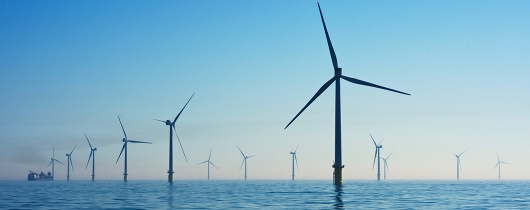Climate Change | Cambio Climático

St. Leonard of Port Maurice
Daniel 7:2-14; Luke 21:29-53
I recently listened to a podcast that addressed two fundamental strategies for addressing the reality of climate change: mitigation and adaptation.
Mitigation is the strategy we hear most about. It includes moving away from fossil fuels like oil, gas, and coal and adopting cleaner and renewable forms of energy like solar, wind, and biomass. It includes conservation, planting trees, reducing our consumption of meat, etc.
Adaptation is a different approach. It acknowledges that some of the impacts of climate change—rising sea levels, longer droughts, larger wildfires, more catastrophic storms, etc.—are already part of our lives and are going to continue for the foreseeable future. Our best response is to adjust our lives accordingly: build higher sea walls, stronger buildings, move people away from flood zones and combustible forests, etc.
Today’s readings ask us to consider a third strategy: faith in God and divine providence. “Heaven and earth will pass away,” Jesus assures us, “but my words will not pass away." Daniel’s vision is that the reign of God will remain long after every earthly kingdom, empire, and every product of human hubris crumbles.
These readings are not an invitation to fatalism, complacency, discouragement, or disengagement from the challenges we face. Instead, they remind us that we cannot effectively engage with creation without acknowledging, trusting, and heeding the voice of our Creator. - jc
----------------------------------------------------------------------------------------
San Leonardo de Puerto Mauricio
Daniel 7:2-14; Lucas 21:29-53
Hace poco escuché un podcast en el que se abordaban dos estrategias fundamentales para afrontar la realidad del cambio climático: la mitigación y la adaptación.
La mitigación es la estrategia de la que más se habla. Incluye el abandono de los combustibles fósiles, como el petróleo, el gas y el carbón, y la adopción de formas de energía más limpias y renovables, como la solar, la eólica y la biomasa. Incluye la conservación, la plantación de árboles, la reducción del consumo de carne, etc.
La adaptación es un enfoque diferente. Reconoce que algunos de los impactos del cambio climático -subida del nivel del mar, sequías más prolongadas, mayores incendios forestales, tormentas más catastróficas, etc.- ya forman parte de nuestras vidas y van a continuar en un futuro previsible. Nuestra mejor respuesta es ajustar nuestras vidas en consecuencia: construir diques más altos, edificios más fuertes, alejar a la gente de las zonas de inundación y de los bosques combustibles, etc.
Las lecturas de hoy nos piden que consideremos una tercera estrategia: la fe en Dios y en la providencia divina. "El cielo y la tierra pasarán", nos asegura Jesús, "pero mis palabras no pasarán". La visión de Daniel es que el reino de Dios permanecerá mucho tiempo después de que se desmorone todo reino terrenal, todo imperio y todo producto de la arrogancia humana.
Estas lecturas no son una invitación al fatalismo, a la autocomplacencia, al desánimo o al desentendimiento de los retos que afrontamos. Por el contrario, nos recuerdan que no podemos comprometernos eficazmente con la creación sin reconocer, confiar y prestar atención a la voz de nuestro Creador. - jc




